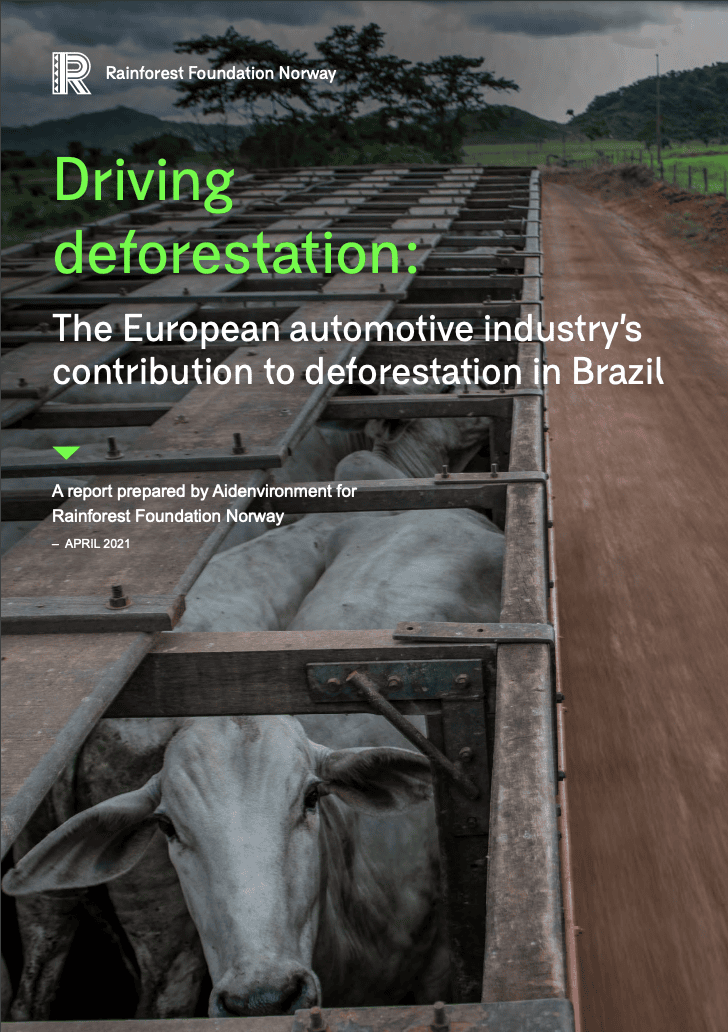Driving deforestation: The European automotive industry’s contribution to deforestation in Brazil

This report on the Brazilian leather industry, a collaborative effort between Rainforest Foundation Norway and AidEnvironment, reveals how it is highly likely that European car manufacturers contribute to deforestation of the Amazon. The report underscores that the automotive industry does not do enough to mitigate its deforestation risks.
The report assesses 15 companies in the automotive supply chain on their due diligence policies and practices regarding leather-related deforestation risks. Companies were individually and systematically scored in relation to the strength of their zero-deforestation policies and strategies; how they implemented these policies; the information they disclose to the public; and their performance, all of which were assessed against best practice indicators, based on the Guiding Principles of the Accountability Framework.
Get more by reading the full report
Key takeaways highlighted by RFN
– The automotive industry does not do enough to mitigate its deforestation risks. While some companies have recently adopted zero-deforestation measures, all fall short of best practices.
– There is a growing divide between the leaders who are taking initial steps to ensure that their products are not linked to forest destruction, and the laggards who fail to take any meaningful measures. Lear Corp, Adient and Hyundai are the only companies with a dedicated zero-deforestation policy. Well-known brands including Volkswagen, Renault and Ford fall short.
– Unsubstantiated sustainability claims about alternative products, and high-profile philanthropic donations are no substitute for necessary measures to achieve deforestation-free supply chains.
– A group of investors has recognized the deforestation risks in this sector. Responsible investors have an opportunity to reduce the deforestation footprint of the automotive industry through targeted active ownership.
